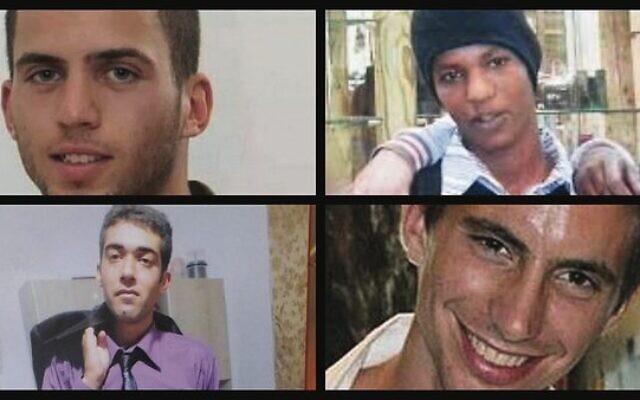Fresh hope for return of Israeli captives, remains

SOURCES speaking to Arabic-language media say Israel and Hamas are nearing agreement on a long-sought prisoner swap deal.
Palestinians are expected to hand over a recording testifying to the condition of two Israeli captives apparently held by Hamas in Gaza, whose returns are sought alongside the repatriation of the remains of two soldiers killed in 2014, the UK-based Al-Arab news outlet reported at the weekend.
Hamas is thought to be holding civilian captives Avera Mengistu and Hisham al-Sayed, who entered the Strip of their own accord in 2014 and 2015, respectively. Both reportedly suffer from mental health issues.
The terror group is also holding the bodies of soldiers Hadar Goldin and Oron Shaul, who were killed in the summer 2014 war with Hamas and taken before their remains could be recovered.
Sources speaking to Al-Arab and UK-based newspaper al-Araby al-Jadeed indicated that a visit to Israel by Egyptian spy chief Abbas Kamel planned for the end of November was linked to progress made in the talks, which may also include a comprehensive long-term ceasefire meant to end repeated rounds of tit-for-tat fighting.
“The deal’s steps and the full picture are ready and just awaiting the Israeli green light,” a source told al-Araby al-Jadeed.
The sources indicated that the deal had been held up in the past by lower-level representatives of Hamas’s Izz ad-Din al-Qassam Brigades armed wing needing to consult with their leadership, and was only resolved once the terror group sent a senior official from its military unit to talks with Egyptian mediators.
A deal is expected to include the release of a number of Palestinian prisoners, in the mould of past swaps.
Kamel hinted at the release of Palestinian prisoners when he told an Israeli journalist on the sidelines of the world climate summit in Glasgow last week that a deal should start with the release of elderly prisoners, along with women and adolescents.
Hamas is thought to be seeking higher-value security prisoners, in prison for serious terror attacks, whose release Israel would be less likely to agree to.
According to sources quoted by Al-Arab, Egyptian mediators are expected to receive a tape showing the condition of the Israelis held by Hamas; the number and “quality” of prisoners would be determined by how the Israelis appear in the footage, a source said.
The report did not indicate who would be shown in the tape. Little information has been offered publicly about the Israeli captives. Hamas has held its cards close to its chest regarding who it is holding and what their condition is.
Proof-of-life tapes are a common demand in such negotiations to ensure captives have not been grievously harmed.
Israeli officials have generally refrained from commenting on the status of talks, which are being brokered via Egypt.
Kamel, who has played a leading role in both mediation efforts between Israel and Hamas and internal Palestinian reconciliation efforts, told Axios last week that he was planning a trip to Israel later in the month, which would be his second since Prime Minister Naftali Bennett took power from former PM Benjamin Netanyahu.
He said he might visit Palestinian Authority President Mahmoud Abbas as well.
Sources told al-Araby al-Jadeed that Kamel would come bearing the Palestinian negotiating position regarding a long-term ceasefire to bolster a short-term arrangement reached to end an 11-day flare-up in May, including Hamas agreeing to Israeli supervision on any goods entering the Strip.
Israel insisted following that war that it would not allow material or money to enter the Strip for rebuilding until a deal to release the Israeli captives and remains was reached, but seemingly softened those demands in September, allowing in Qatari cash and some materials.
According to al-Araby al-Jadeed, Hamas has insisted that the prisoner swap deal be tied into a long-term ceasefire deal, which would also include Israel loosening its blockade on the Strip.
Gaza has been tightly blockaded by both Israel and Egypt for a decade and a half; both countries say allowing freer movement of goods and people could strengthen Hamas and allow it to rebuild terror infrastructure.

comments